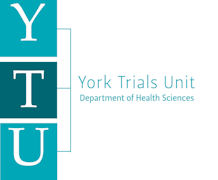GATEWAY: a study to examine the effectiveness of the Gateway programme aimed at improving health and well-being of young adult offenders, victim satisfaction and reducing recidivism
Our study aimed to evaluate the effectiveness and cost-effectiveness of the Gateway programme in improving the health and well-being of young adult offenders. High attrition rates led to early closure of the trial and meant that neither effectiveness nor cost effectiveness could be assessed as planned.
Why did we do this research?
Young adults who commit low-level offences commonly have a range of health and social needs and are significantly over-represented in the criminal justice system. Some feel more should be done to help young adults entering the criminal justice system. The Gateway programme was an out-of-court disposal developed by Hampshire Constabulary, which aimed to address the complex needs of young adults who commit low-level crimes.
What did we do?
Our study aimed to evaluate the cost and effectiveness of the Gateway programme, issued as a conditional caution, in improving the health and well-being of young adult offenders. We attempted a pragmatic, parallel-group, superiority randomised controlled trial that recruited young adults who had committed a low-level offence from four sites covering Hampshire and Isle of Wight. Participants were randomised to the Gateway programme or to usual process. The primary outcome was mental health and well-being measured using the Warwick-Edinburgh Mental Well-being Scale. Secondary outcomes were quality of life, alcohol and drug use, and recidivism. Outcomes were measured at 4, 16 and 52 weeks post randomisation.
What did we find?
Due to issues with retention of participants and low data collection rates, recruitment ended early, with 191 eligible participants randomised (Gateway 109; usual process 82). The primary outcome was obtained for 93 (48.7%) participants at 4 weeks, 93 (48.7%) at 16 weeks and 43 (22.5%) at 1 year. The high attrition rates meant that neither cost nor effectiveness could be assessed.
Gateway is the first trial in a UK police setting to have a health-related primary outcome requiring individual data collection, rather than focusing solely on recidivism. We demonstrated that it is possible to recruit and randomise from the study population, however follow-up rates were low. Further work is needed to identify ways to facilitate engagement between researchers and vulnerable populations to collect data.
Publications
- Mitchell A, Booth A, Morgan S, Walker I, Chapman C, Barlow-Pay M, Cochrane A, Filby E, Fleming J, Hewitt C, Raftery J, Torgerson D, Weir L, Parkes J. Examining the effectiveness of the Gateway conditional caution on health and well-being of young adults committing low-level offences: a randomised controlled trial. BMJ Open. 2024 Apr 25;14(4):e081179. DOI: 10.1136/bmjopen-2023-081179
- Walker I, Morgan S, Weir L, Parkes J. Lessons from the Gateway programme, aimed at improving health and life chances for young people committing low-level offences: a qualitative evaluation. Lancet. 2023 Nov;402 Suppl 1:S4. DOI: 10.1016/S0140-6736(23)02058-5
- Cochrane, A., Booth, A., Walker, I. et al. Examining the effectiveness of Gateway—an out-of-court community-based intervention to reduce recidivism and improve the health and well-being of young adults committing low-level offences: study protocol for a randomised controlled trial. Trials 22, 939 (2021). https://doi.org/10.1186/s13063-021-05905-2
- Booth A, Morgan S, Walker I, Mitchell A, Barlow-Pay M, Chapman C, et al. An out-of-court community-based programme to improve the health and well-being of young adult offenders: the Gateway RCT. Public Health Res 2024;12(7). https://doi.
org/10.3310/NTFW7364 - An out-of-court community-based programme to improve the health and well-being of young adult offenders: the Gateway randomised controlled trial. An executive report for Hampshire Constabulary and the Hampshire Police and Crime Commissioner. 2024 Gateway Exec Report for HC (PDF
 , 294kb)
, 294kb)
Privacy Notice: How we use your research data
Funding
The research was commissioned by NIHR PHR programme (Award ID: 16/12/20) and a grant of £1,396,928.35 awarded. The project was started in March 2018 and completed in September 2022.
Study Registration
ISRCTN11888938 https://doi.org/10.1186/ISRCTN11888938
Members
YTU Team:
- Alison Booth – Trial Manager
- Catherine Hewitt – Co-applicant
- David Torgerson – Co-applicant
External Team:
- Dr Julie Parkes, Associate Professor in Public Health, Department of Primary Care and Population Health, University of Southampton, (Chief Investigator)
- Dr Sara A Morgan, Research Fellow in Public Health, Department of Primary Care and Population Health, University of Southampton
- Dr Inna Walker, Specialty Registrar in Public Health, Department of Primary Care and Population Health, University of Southampton
- Ms Rosanna Orlando, Research Fellow in Health Economics, Faculty of Health Sciences, University of Southampton
- Professor Jenny Fleming, Director of the Institute of Criminal Justice Research, University of Southampton
- Professor James Raftery, Faculty of Medicine, University of Southampton
- Inspector Ben Taylor, Gateway Project Manager, Southampton Central Police Station, Hampshire Constabulary
- Sergeant Caroline Chapman, Gateway Project Support Officer, Southampton Central Police station, Hampshire Constabulary



